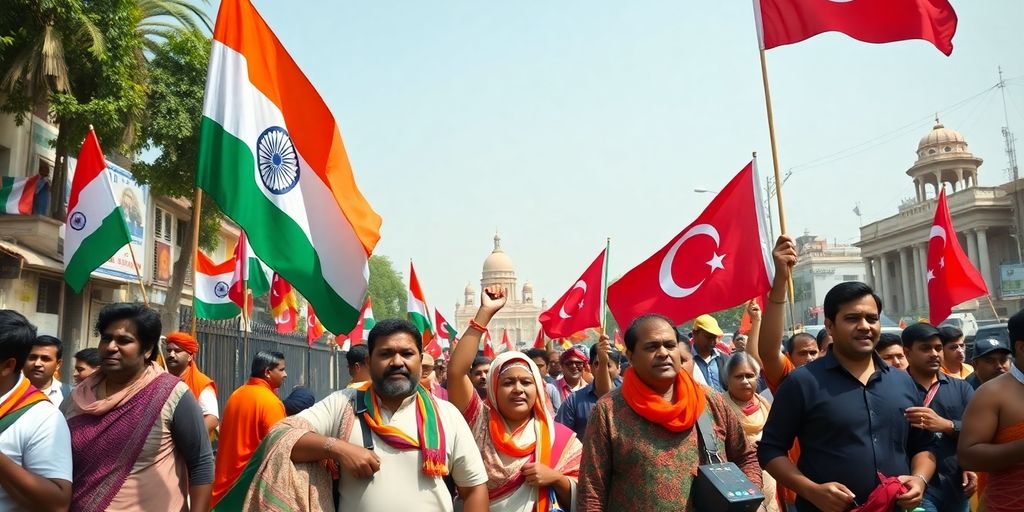In response to Turkey’s recent support for Pakistan during escalating tensions over Kashmir, India is witnessing a significant backlash against Turkish products and services. This movement has gained momentum across various sectors, including travel, trade, and education, as public sentiment turns against Turkey.
Key Takeaways
- Public Boycott: A widespread call for boycotting Turkish goods and services has emerged in India.
- Travel Impact: Bookings to Turkey have dropped by 60%, with cancellations surging by 250%.
- Trade and Education: Major Indian companies and universities are severing ties with Turkish entities.
Background of the Conflict
The recent diplomatic rift between India and Turkey stems from Turkey’s vocal support for Pakistan amid military hostilities. Following a deadly attack in Kashmir, India conducted airstrikes against what it termed terrorist infrastructure in Pakistan. In response, Turkey and Azerbaijan expressed solidarity with Pakistan, prompting outrage in India.
Economic Fallout
The backlash has led to a multipronged boycott of Turkish products, affecting various sectors:
- Aviation: The Indian government revoked the security clearance of Turkish ground handling company Celebi, citing national security concerns. This decision has disrupted operations at major airports, including Delhi and Mumbai.
- Travel Industry: Travel agencies report a drastic decline in bookings to Turkey and Azerbaijan. MakeMyTrip noted a 60% drop in bookings and a 250% increase in cancellations, as travelers express strong sentiments against visiting Turkey.
- Consumer Goods: The All India Consumer Products Distributors Federation has called for an indefinite boycott of Turkish products, including chocolates, cosmetics, and clothing. Major retailers like Myntra and Ajio have already removed Turkish brands from their platforms.
Educational Institutions Cut Ties
Several prominent Indian universities, including Jawaharlal Nehru University and Jamia Millia Islamia, have suspended academic collaborations with Turkish institutions. This move reflects a broader sentiment among educational leaders to distance themselves from Turkey amid the ongoing conflict.
Social Media Influence
The boycott movement has been significantly fueled by social media campaigns, with hashtags like #BoycottTurkey trending across platforms. Influential political figures have echoed these sentiments, urging citizens to reconsider their spending habits in light of Turkey’s support for Pakistan.
Future Relations Uncertain
The ongoing boycott and diplomatic tensions have raised questions about the future of India-Turkey relations. While some experts believe that the economic impact of the boycott may be limited, the long-term effects could strain bilateral trade and cooperation.
As the situation develops, both countries will need to navigate these tensions carefully to avoid further escalation. The Indian government has indicated that it will prioritize national interests in its dealings with Turkey, suggesting that a resolution may take time.
In conclusion, the backlash against Turkey is a reflection of the deep-seated sentiments in India regarding national security and foreign relations. As public sentiment continues to shape economic and diplomatic actions, the future of India-Turkey ties remains uncertain.
Sources
- Boycott Turkey gains momentum: From aviation to chocolates, list of Turkish products and services shunned by
India, Mint. - Erdogan’s Big India Provocation; Turkey Openly Calls For Foreign Intervention In Kashmir, Times of India.
- Indians urge travel boycott amid support to Pakistan, BBC.
- Turkey faces Indian backlash over Pakistan ties – DW – 05/19/2025, DW.






